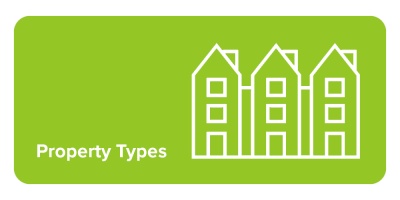
When it’s time to buy a new home, it helps to know not only where you want to live, but also what type of home you’ll choose.
From single family homes to condos and townhouses, each property type has unique characteristics to understand before you buy.
Below you’ll find the differences between seven common property types. After reading through each you’ll have a better idea of which one best suits your lifestyle and needs.
Let’s start with Single family homes.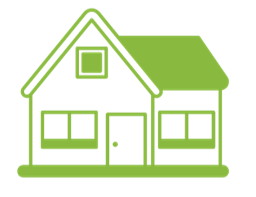
Single Family:
A single-family home, or stand-alone house, is the most common and popular type of home. Some single-family homes are in subdivisions or communities that fall under the governance of a homeowner’s association (HOA). If applicable, buyers should become familiar with the HOA's rules and covenants prior to deciding to purchase.
Ownership is by deed, and you own the land, the dwelling, additional structures, and any improvements made to them.
Multi-Family:
Multi-family housing can refer to anything from a two-family home up to an apartment building with hundreds of units.
Ownership is by deed. Typically, one owner will hold the deed for the land, all units, and any additional structures, common areas and amenities. The owner will often occupy one unit and lease the remaining units to renters. Conventional residential financing is available only on properties up to 4 units. Additional units typically require commercial financing.
Condo:
Condominiums, or condos, can take many forms but are typically residential living units like apartments.
Ownership is by deed. Rather than owning a building and the land, you own only your unit and a percentage of the common areas like hallways, the grounds, and amenities.
P.s. If you’re buying for the first time, condos make a great first choice!
Co-Op: 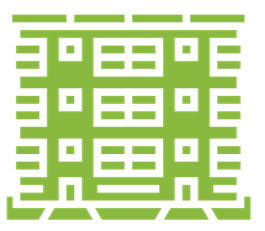
Co-ops (cooperatives) are similar to condos in that they are usually like an apartment unit. More rarely, there are versions more like single family homes.
However, the ownership is unique. Rather than having a deed, you own shares appropriated to an individual unit, including an interest in the common areas and amenities.
Townhouse: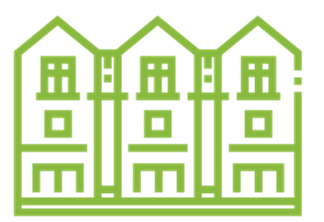
A townhouse is one unit in a series of attached city rowhouses where dividing walls can be shared. The term can also refer to the style of home rather than to the type of ownership. The style is often part of a condominium community.
Ownership of a true townhome property type is by deed, which will describe the exact bounds or dividing lines and land owned. The experience will typically be similar to owning a single-family residence.
Townhouses are another great option for first-time buyers!
Land:
Land, often called a lot in residential areas, is property with no structures. Land is easier to finance when you plan to use a construction loan to build a home on it.
Ownership is by deed. Many residential lots are in subdivisions that have a homeowner’s association (HOA). If applicable, buyers should become familiar with the HOA's rules and covenants prior to deciding to purchase.
Commercial: 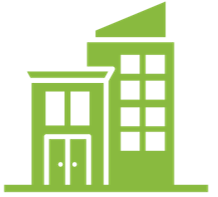
Commercial properties are designated for business uses, including retail, services, offices, etc. Financing is different than for residential properties.
Ownership is typically by deed, but commercial properties can also be part of a condo association.
Bottom Line:
If you have questions about properties or any aspect of home financing, please reach out. The Greenway Team is here and ready to help!
MarketMinute | Are first-time buyers still in the market?


|
|
|

|
|
|
MarketMinute | How are builders feeling about the market?


|
|
|

|
|
|

You’re almost there! You’ve been saving so long for a down payment on a new house and even set a budget for your monthly mortgage payment. But there’s one more thing you’ll need to consider: closing costs.
Surprisingly, many home buyers get caught off guard by closing costs, which can certainly be an unpleasant surprise if you’re unaware.
According to a 2021 Realtor.com survey of 3,000 adults, 44% said they weren’t aware of all the costs associated with buying a home.
What Are Closing Costs and What Do They Cover?
Closing costs encompass a variety of expenses above your property’s purchase price. They include things like lender fees, title insurance, government processing fees, upfront tax payments, and homeowners’ insurance.
In short, closing costs are a collection of fees and payments made to a variety of individuals and organizations who are involved with your transaction. They cover things like:
- Government recording costs
- Appraisal fees
- Credit report fees
- Lender origination fees
- Title services
- Tax service fees
- Survey fees
- Attorney fees
- Underwriting Fees & Processing Fees
- Escrow
- Home inspection
- Property tax
- Private Mortgage Insurance (PMI)
Be sure to ask your Greenway Loan Officer for a detailed list.
How Much Should You Budget for Closing Costs?
Closing costs are typically between 2% and 5% of the total purchase price of your home. With that in mind, here’s how you can get an idea of what you’ll need to cover your closing costs.
Example:
- You’ve found a home for $500,000.
- Your closing costs (based on the 2%-5% Freddie Mac estimate) could be between $10,000 and $25,000.
Keep in mind that if you’re in the market for a home above or below this price range, your closing costs will be higher or lower.
How Can You Best Prepare Yourself for Closing Day?
When starting the mortgage process, it’s important to understand all costs involved from the down payment to closing costs. Working with a team of trusted professionals will ensure a smooth journey.
The Loan Officers at Greenway Mortgage can help connect you with a local Real Estate Agent. Together, we can help answer any questions you might have.
Learn More About Financing Your Closing Costs in this video here with Erin The Expert.
Bottom Line:
In today’s real estate market, making sure you budget correctly is key. Gather all the knowledge you need to be confident going into the home buying process ahead of time so there are no surprises. Most importantly, lean on us, the team at Greenway Mortgage for any guidance. We are here to help.


|
|
|

|
|
|





.jpg)
.png)
.png)